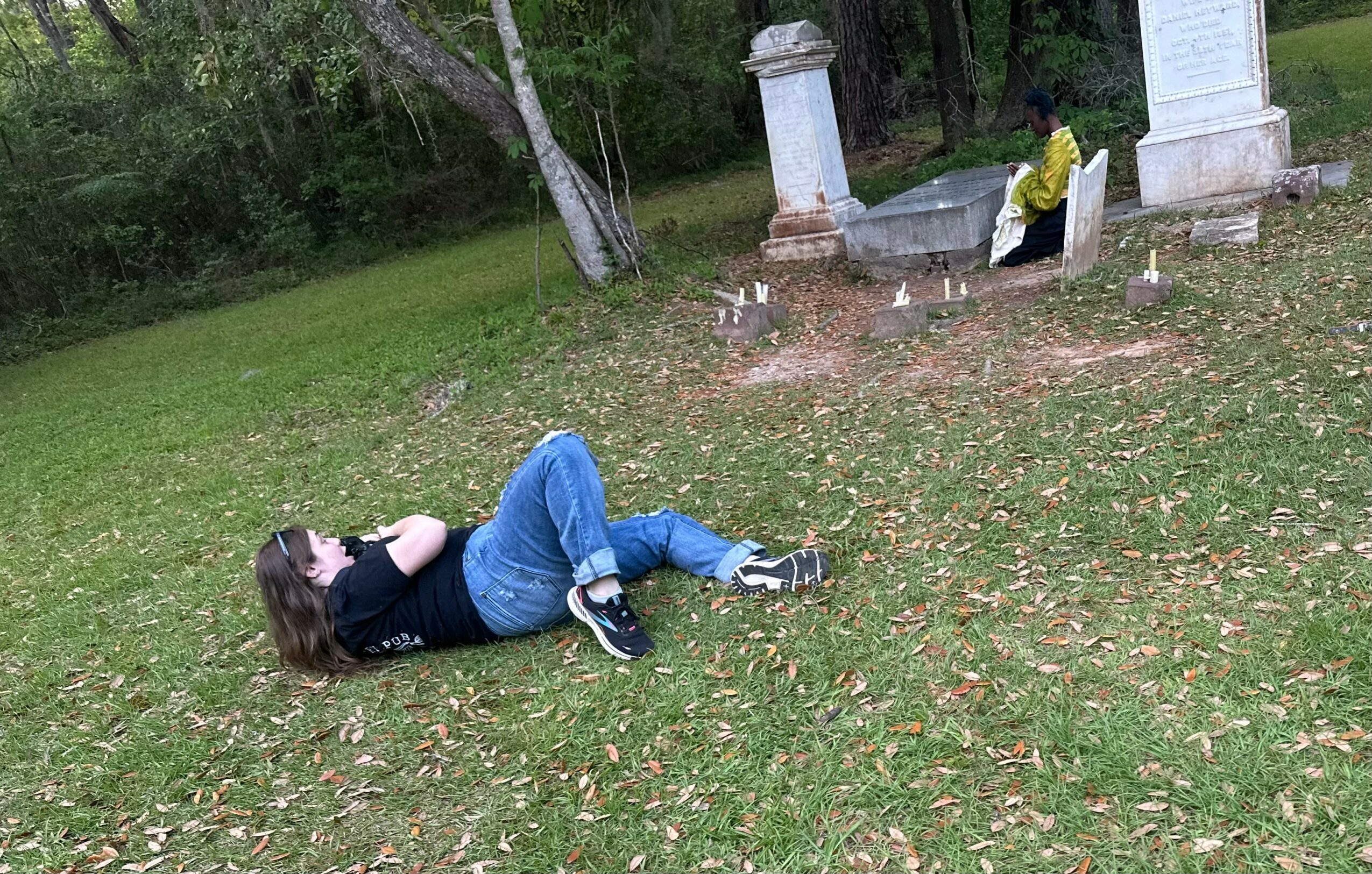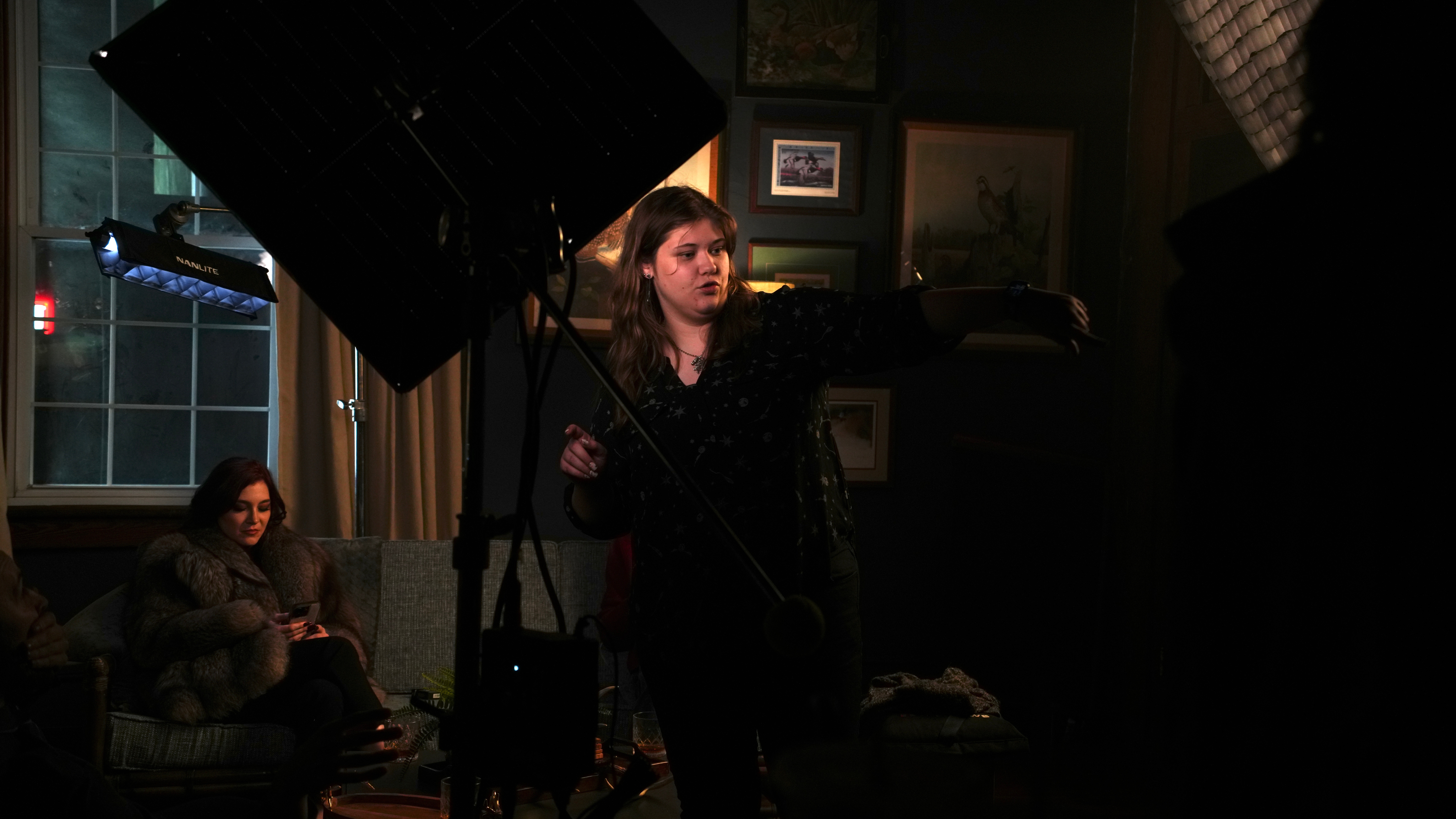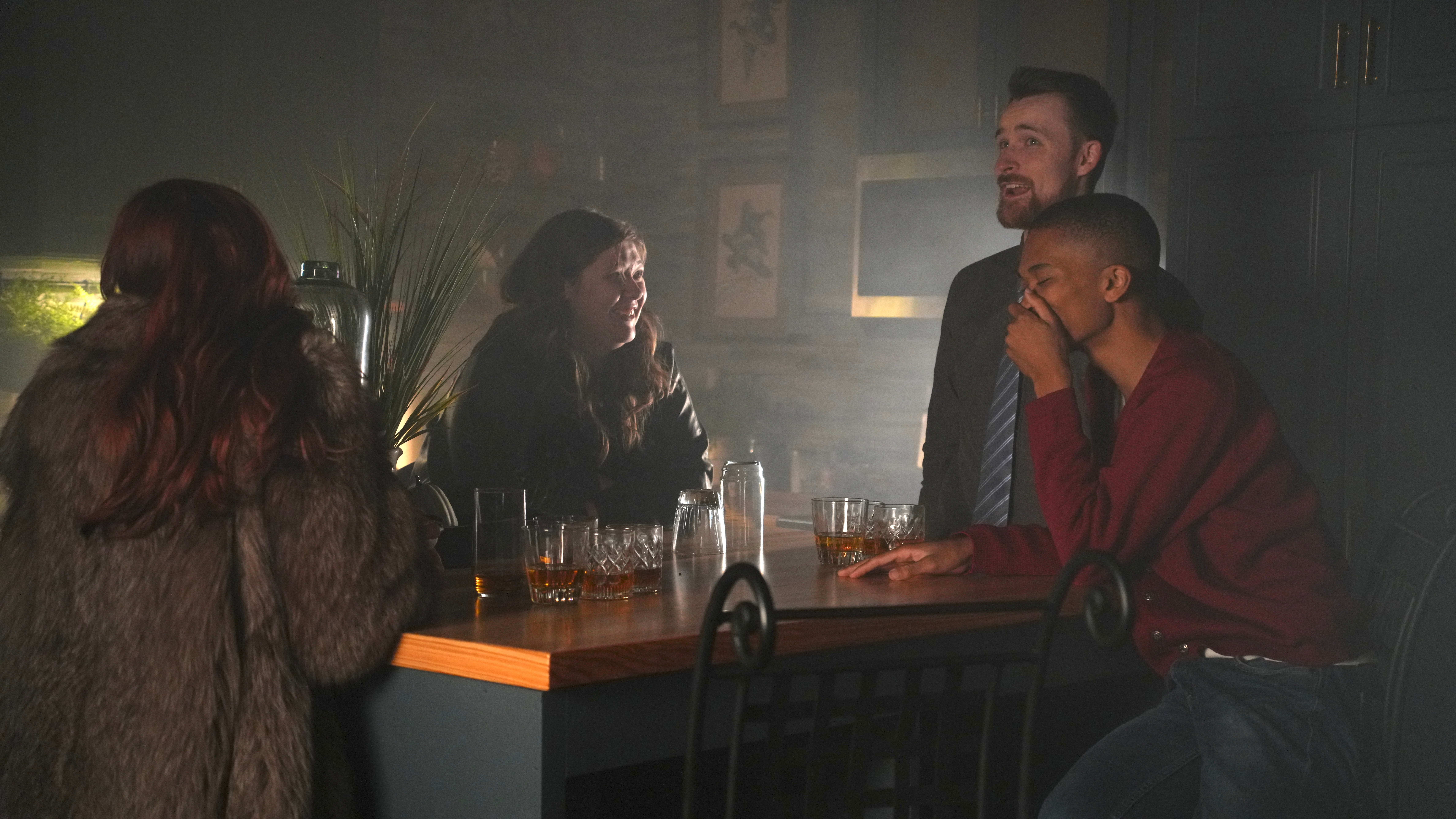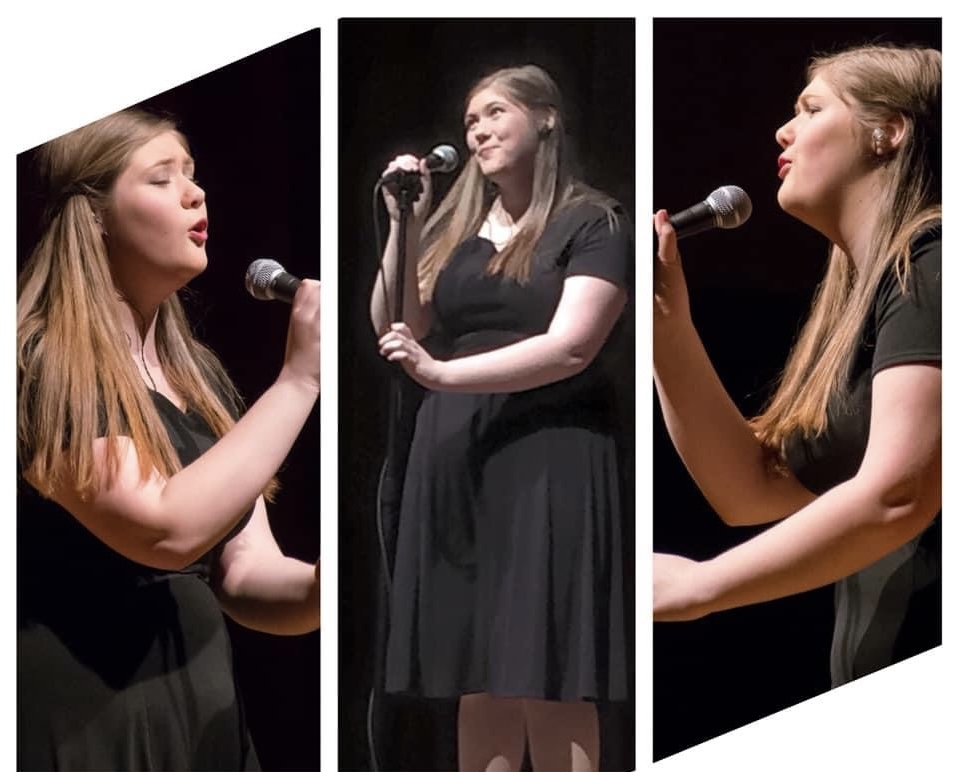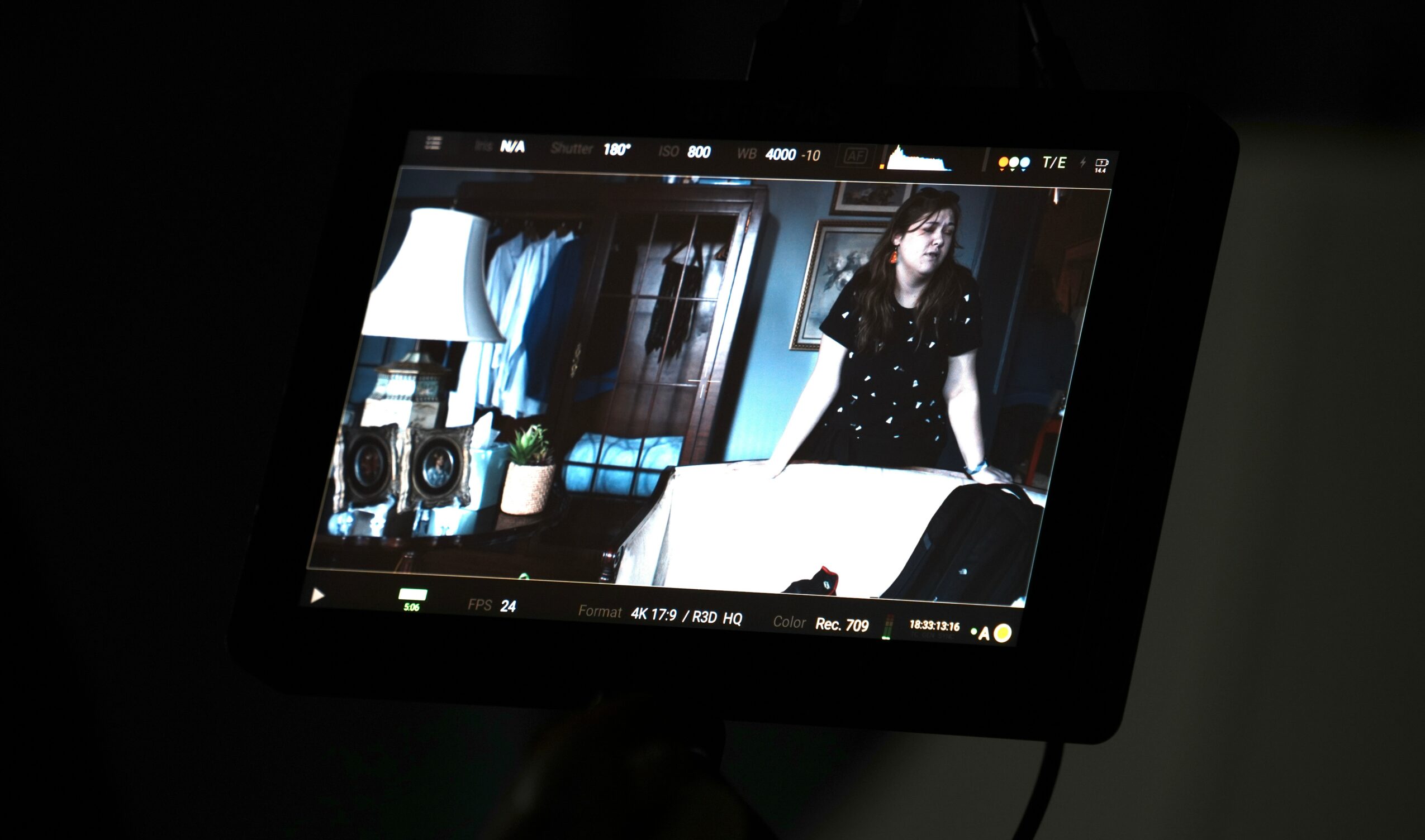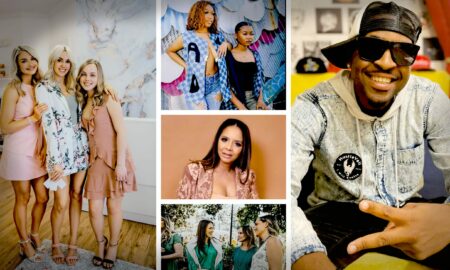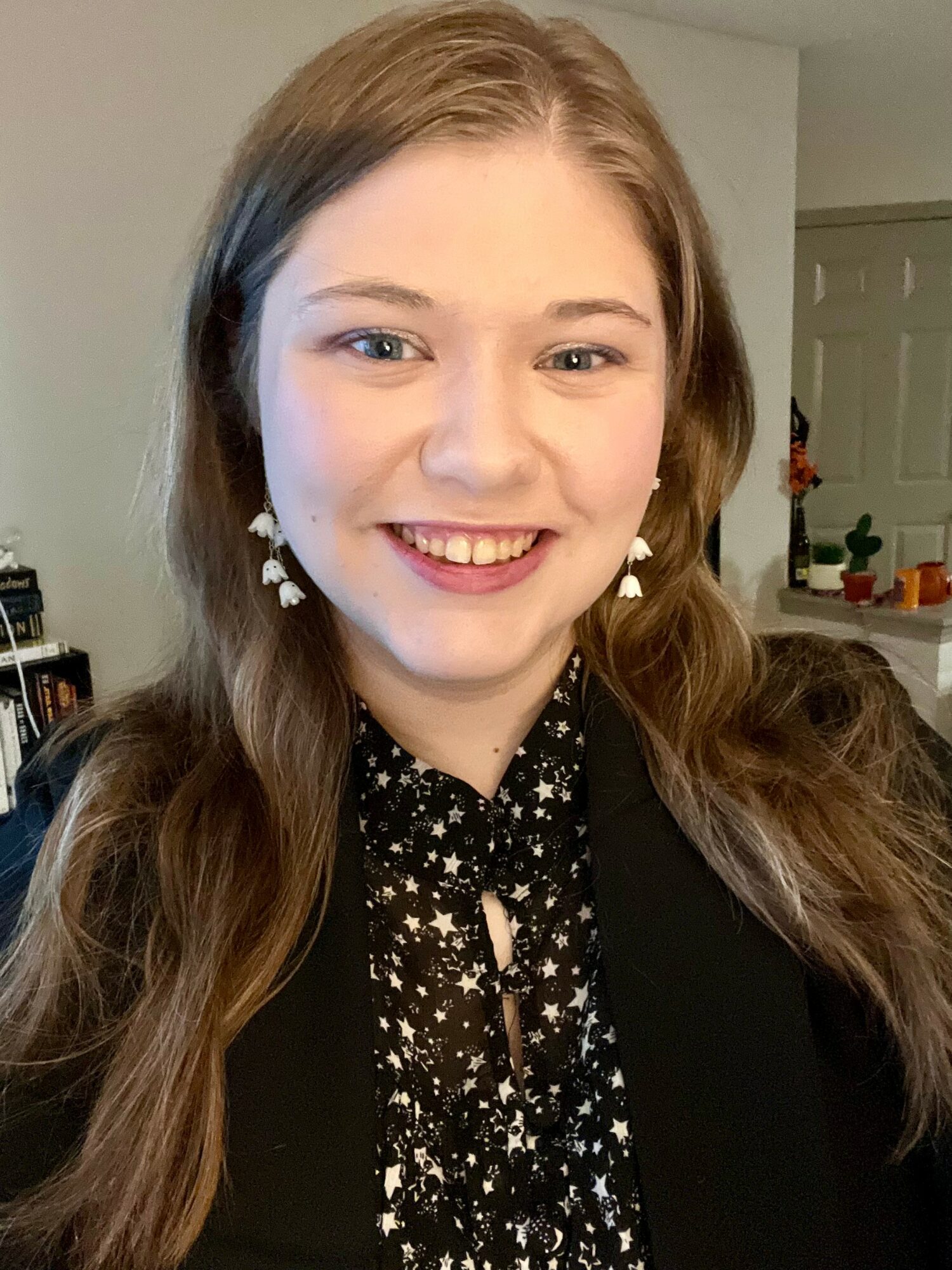

Today we’d like to introduce you to Becca Robinson.
Hi Becca, can you start by introducing yourself? We’d love to learn more about how you got to where you are today?
My story begins with my birth, October 25th 1999 where my young parents (22 and 27) were told their daughter would be born early and without a brain stem. I was born early, a 31 week preemie, but I did have my brain stem. It was actually my lungs and my limbs that didn’t work the way they were supposed to. Growing up disabled wasn’t always easy, but for the most part I never really knew I had a disability. Not being able to run as fast and play as hard like the other kids did was just something I had accepted. It wasn’t until I was much older that I started to realize what having a disability meant.
The first time I remember being “different” was when I had to leave show choir rehearsal at 13 years old because I got sick. My mother was one of the choir directors, and she came home in tears. It took me awhile to get her to finally tell me what happened, but apparently an older boy, I believe he was a senior in high school, got upset that I was allowed to participate even though I sometimes got sick and missed rehearsals. This was my earliest memory of understanding that not everyone would be accepting or accommodating,
Being a disabled artist wasn’t always difficult. Mostly it was accepting what I could and couldn’t do. My dysgraphia meant that I couldn’t play guitar like I wanted to, and while that was a disappointment, I would rather not play guitar than be back in hand braces. I spent most of my marching band career in boots from broken ankles or with wrist braces on, but I never let this slow me down. I was still an accomplished musician and a thespian who made due with that I had.
The second time I realized I was disabled was in college. I was double majoring in theater and vocal performance. Acting and singing were my LIFE! All I wanted was to be on the stage, lights beaming down, and a song coming from within. But I was told, point blank, after I had injured my wrists from learning piano, that I wouldn’t be allowed to be a vocal performance major if I couldn’t play the instrument. I remember asking “if I were paraplegic, and had no arms, you’re saying I wouldn’t be able to get a vocal performance degree from your institution?” The response was a cold “yes.”
I was shocked by this. In high school I had the pleasure of giving music lessons to younger children, many of which who had physical and development disabilities. I found ways to modify instruments so that they could play. Surely an esteemed college would find a way for me to do the same, right? Alas, it wasn’t the truth, and I didn’t want to fight it, either. Growing up in and out of hospitals, on and off of machines and medicines, your whole life is a fight. It gets tiring after a while.
So, a dropped my music major to a minor and went all into theatre. I found my love of directing and the technical side of the craft. I loved sound design and costume design, I loved Shakespeare and modern musicals, I couldn’t get enough of it! There were times where I remembered being in high school and considering law school. It seemed practical at the time, but I would have been miserable. I had always been a straight A student and performed in the top percentages of my class. It was almost expected that I would go to school for something my teachers would have called worthwhile. But I couldn’t stray from the arts. It had been my home forever. On the stage, I wasn’t a disabled girl with her own insecurities and fears. I could be anything I wanted to be, and I wanted to share that with others.
Then COVID hit. The industry was shattered. No one put on live shows. I watched every theatre professional I knew lose their jobs. It was disheartening, but it also opened my eyes to what I really wanted. I wanted to go into film and television,
The first time I officially picked up a camera and shot something I was 8 years old. I made a series of videos with my toy horses, and in some ways I accredit this to being the start of my film career. I’ve always been a storyteller, no matter the medium. The pandemic showed me that there was more job security in film work. Yes, my friends in film had to pause their productions, but then they found work in news or commercials. The market still lived even as the world froze!
So, after graduating with my BFA in theatre and my music minor, I finally made the decision to go to film school. Growing up in a small town in Appalachia in Ohio meant that most everybody stayed where they were. If I was going to go into film, it wasn’t going to be found there. I had to make the biggest decision in my life and move 14+ hours away from all of my family and friends. It was nerve wracking! But, that year I had experienced a lot of loss. After care giving for my grandparents for 3 years, they passed away. I didn’t have a lot to tie me down, and my parents were very supportive, so me and my dog got in the car and made the trip to Savannah.
Since living in Savannah my mind has been opened to all of the possibilities of what a filmmaker can be. I never really knew what I was going to do or what types of films I was going to create, but through my MFA at SCAD I finally started to figure it out.
My thesis focused on the psychological benefits of dark comedy, specifically in relation to family trauma and grief. The idea came from the death of my grandparents and from a random woman on the internet who got mad at me for making a joke about a peanut allergy. For reference, I have had an airborne anaphylactic very fatal peanut and tree nut allergy my enter life. If anyone gets to joke about it, it’s me. The title of my thesis research was “You can’t joke about that” all because of some woman’s nerve. I made my thesis film, Inheritance, that explores family trauma and death.
It’s weird, death and grief. Sometimes you don’t realize that someone damaged you until after they’re gone. I don’t and won’t speak ill of the dead, and my recognition that I have been hurt by people who have passed doesn’t change the fact that I love them, but it was a hard realization to have. It was necessary though, and through my work me and my family members who went through the trauma with me have found some catharsis, and that’s what I aim to do.
I no longer make videos about toy horses (although my horse noises as a kid were spectacular), instead, I am a filmmaker who makes dark comedy films using psychology to provide benefits to those who see and relate to them, It’s for laughs, yes, but it’s also specifically for people who can relate to the trauma of the characters and need the laugh the most. I write my scripts while researching the topics and how to best approach them. I never want my films to just be meaningless or for simple entertainment: I want people to gain something from them.
I’m sure it wasn’t obstacle-free, but would you say the journey has been fairly smooth so far?
I feel like I went into this on the other question, but mostly my biggest obstacle are people. I’ve not always had the most confidence or the greatest self image. Some of it comes from being disabled, but most of it comes from the inherent fear you get when baring your soul to others. Because I write and direct my own films, I always have that fear of putting myself out there. Am I good enough? Will anyone like this? Not to mention the lack of confidence that comes with being a woman, a disabled woman, in such a cut-throat industry. Sometimes my body doesn’t do what I want it to do and I have to cancel plans or I look bad because I have hives and am bloated. Sometimes I’m in casts and boots or connected to oxygen. It’s not always the most flattering look.
Alright, so let’s switch gears a bit and talk business. What should we know about your work?
I am a writer, musician, and filmmaker from Ohio. I feel like I am most known in Ohio as a singer and an actor, but Savannah would know me more as a filmmaker, specifically a writer and director. I am most proud of my thesis. There were times it nearly broke me putting it together. I had to do nearly everything on my own and it almost broke the bank a few times. I laughed, cried, screamed. It got to the point my mother called my former mentor from undergrad in the middle of the night and asked him to talk to me because I was having a breakdown about it. I’m fine, by the way! It’s just when you put your whole heart into something you’re passionate about it can be difficult to get through it, especially when it’s something so personal.
I think what sets me apart is my passion for my craft. I treat every project, no matter my role, as if it’s the most important thing I’ve ever done. I never want my name on something I’m not proud of, so I always work to make myself proud. I can’t always control how others feel about my work, so I’ve got to make myself happy first. I’ve found that makes people want to work with me more often than not. I may not be the most experienced at something, but I’ve always got the drive to help and the willingness to learn. I pick stuff up pretty quickly, too!
One thing that a disability gives you is the knowledge on how to be adaptable. Most people don’t even know I’m disabled as my disability isn’t visible. I have an advantage in this regard because I am often in spaces where I will hear people talking badly about people with disabilities and I get the opportunity to step in with a “you know I’m disabled, right?” Being a disability advocate and a creative, especially in a big industry like film, is a huge blessing. The more disabled voices we get behind cameras, the less misrepresentation we have.
I sometimes struggle to label myself as a disabled filmmaker because people’s first, gut reaction, is that I am incapable of doing my job or that I’ll flake out. I would argue that as a disabled person I know my body and my limits far greater than any able-bodied individual. All I ask if for people to give me a chance and see what I can do! I currently have a film that’s showing in Florida, France, and India! A feat I never would have thought possible, but something I achieved on my own and with the help of my talented crew. This just shows there’s nothing stopping me from achieving my dreams except the bias of others.
What do you like best about our city? What do you like least?
I am actually a tour guide in this city and I can tell you, hands down, Savannah isn’t like any other place in the world. The architecture alone makes our city a unique place set apart from all others. The people here are genuine and kind, which isn’t something we get a lot of up North (I blame the cold). There are so many interesting things to do here from the many museums to the delicious restaurants. Its rich history, its beautiful landscapes, its hidden gems, what’s not to love about Savannah?
I suppose the attitudes sometimes. I grew up in a college town, so I am used to townies not liking the students. But there also needs to be a recognition that without SCAD, Savannah wouldn’t be what it is. The college provides a lot of jobs and a lot of tourist traffic. Is it perfect? No, it has its flaws just like any college. But the students genuinely love this city and aren’t responsible for the actions of the institution. I just wish that we weren’t often met with such hostility about being students or former students.
Pricing:
- $25 hour long remote vocal lessons
- Wedding/special event videography (rates negotiated)
Contact Info:
- Website: https://filmwithbecca.com
- Instagram: @beccsbees
- LinkedIn: https://www.linkedin.com/in/becca-robinson-66b442292?utm_source=share&utm_campaign=share_via&utm_content=profile&utm_medium=ios_app
